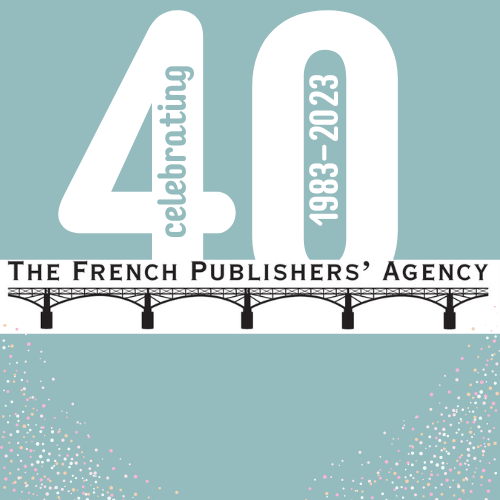The Black Sea in the Big Lakes
Annie Lulu
(Julliard, 224 pages, 2021)
***Winner of the 2021 PRIX Senghor***
***SHORTLISTED FOR LE PRIX ORANGE DU LIVRE 2021***
***TRANSLATION SAMPLE AVAILABLE HERE***
Nila is a rarity in the Bucharest of 1989: a mixed-race child born during the last year of the Socialist Republic of Romania. She grows up in an overtly racist society and under the strict supervision of her mother, Elena Abramovici, a brilliant professor of literature. Nila knows nothing of her absent father, other than that his name is Exaucé Makasi Motembe, and that he was a Congolese student who returned hastily to his homeland after the collapse of the Ceauseşcu regime. To Nila’s knowledge, he has since disappeared, abandoning her to a harsh fate. But when, while attending graduate school in Paris, she stumbles upon the trail of her missing father, she begins an odyssey that will take her to Kinshasa. There, on the African continent, she is at last able to reclaim the hidden part of her ancestry and reconnect the severed ties to her own history.
The Black Sea in the Big Lakes begins and ends in Bukavu, in the eastern part of the Democratic Republic of Congo (DRC), where Nila is about to give birth. Tenderly addressing her unborn son, she narrates her life story, driven by fierce determination to offer him the chance to grow up without lies, rejection, or shame. He will know without a doubt how much he is wanted and loved—unlike herself, who could as well have ended up in an orphanage if not worse. Yet, Lulu’s account of Nila’s solitary childhood does not fall into miserabilism. Once Elena decides to keep her unplanned daughter, she figures that the only solution is to turn Nila into an extension of herself, an intellectual whose niche would be to pioneer Black Studies in Romania, a country “where the moon is still full of pogroms.” Nila studies in Paris for a couple years but fails to fulfill her mother’s vision for her life. Increasingly obsessed with her African lineage, and wounded by a disastrous love affair, she leaves for Kinshasa, where she reunites with her paternal grandmother and discovers a country in political turmoil. She joins the youth revolt demanding social justice and the fall of president Kabila, and finds true love with Kimia, a passionate young activist like her father once was.
In this lush and ambitious novel, the author takes us to places and countries rarely associated with one another: a book-lined apartment in post-Soviet Romania, where Nila sleeps back to back with her mother in a complex and fraught relationship; a moldy flat in Paris, where she experiences her own cruel version of Les Liaisons Dangereuses; an African Parisian neighborhood called Château Rouge, where the unearthing of her African roots begins; the afrofuturist and corrugated iron city of Kinshasa, where she discovers the warm embrace of numerous relatives; and the streets of Goma in a postcolonial country on a brink of another civil war.
Nila, like the author herself, embodies this double cultural heritage, weaving unexpected historical, musical, and culinary threads between the homelands of Ceauseşcu and Mobutu. One of the strengths of her gripping story is her ability to embrace the specters and the wounds of two peoples, thousands of miles apart. Written with poetic eloquence and caustic irony, The Black Sea in the Big Lacs is a dazzling first book revealing the unique voice of a promising young novelist.
Annie Lulu was born in Iași, Romania, to a Congolese father and a Romanian mother. Arriving in France at a young age, she studied philosophy before devoting herself fully to writing.

